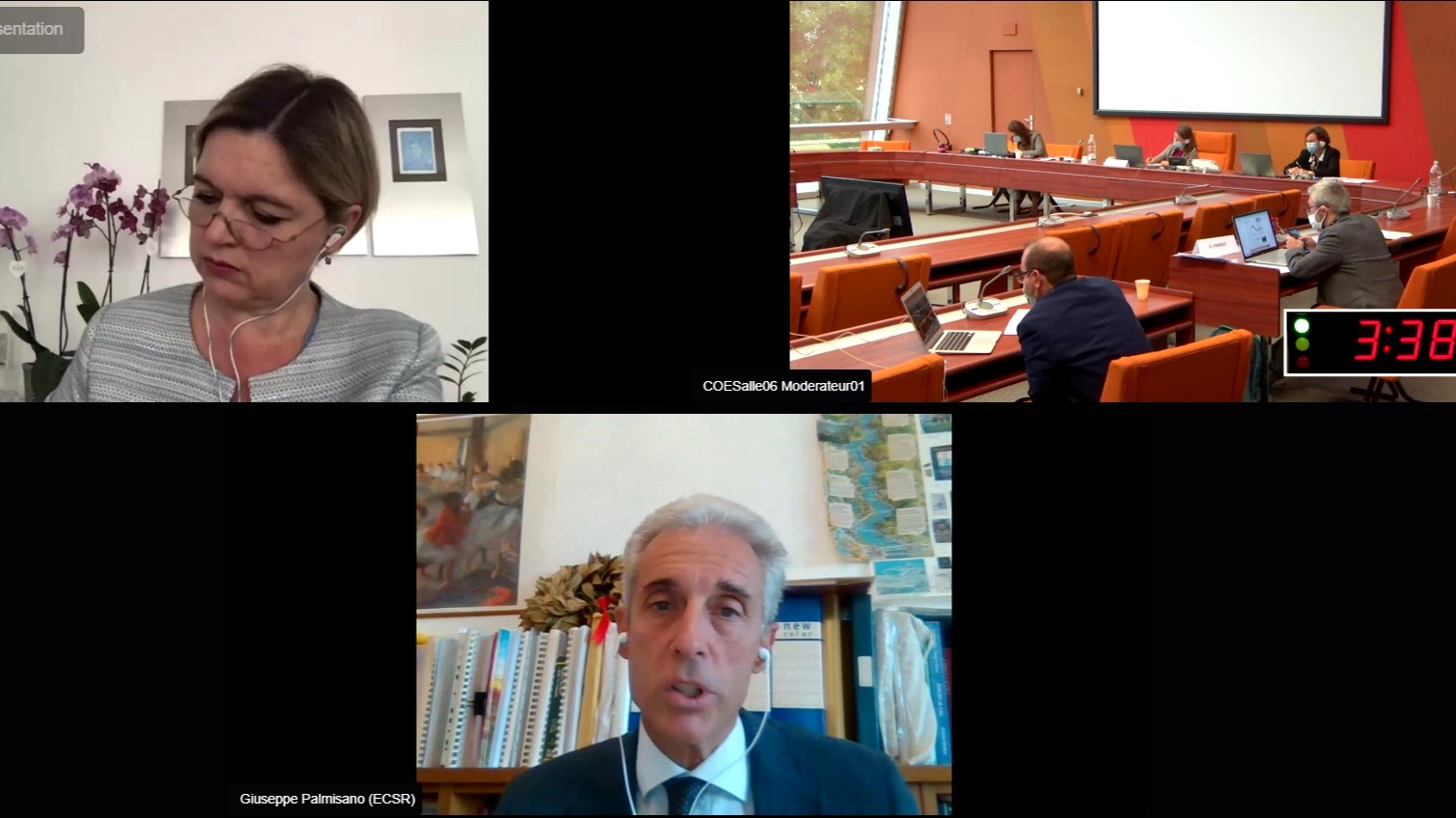“The role of the State in securing social and economic rights across Europe, … emerges from the provisions of the European Social Charter, as well as from the conclusions, decisions and findings of the European Committee of Social Rights”, pointed out Giuseppe Palmisano, President of the Committee, at the hearing on “Overcoming the socio-economic crisis sparked by the Covid-19 pandemic”, organised by the Sub-Committee on the European Social Charter of the Parliamentary Assembly of the Council of Europe on 7 October 2020 by videoconference.
The multiple crises Europe has been facing for more than 10 years, in particular economic, migrant and epidemic, reveal the gaps in the States’ legal arsenal for the protection of social rights. The economic crisis of 2008 had an extremely negative impact on workers, families and the most vulnerable. Among the most vulnerable are also refugees and migrants who are seeking protection and respect for their fundamental rights in Europe. Currently, “the COVID-19 related crisis is painfully revealing that pandemic-preparedness is all about social rights”.
Giuseppe Palmisano stressed that effective and successful pandemic preparedness requires universal, resilient and resourced public health services, safe and healthy working conditions, protection of the rights of the elderly, adequate guarantee of the right to housing, secure employment, minimum income, strong and adequately resourced public education, and guaranteed protection of children and women from all forms of violence, abuse and exploitation.
The COVID-19 crisis has exacerbated existing vulnerabilities and deepened the already existing inequalities. The role of the State in securing social and economic rights is therefore crucial. The decisions and policies adopted and put in place by national authorities could be decisive in times of an emergency. Therefore, “compliance with the European Social Charter provisions should rather be a permanent feature, the default setting. Fulfilling them is necessary both in order to deal with the enduring effects of the crisis and the persistence of the coronavirus, and also to respond to the crises that the future holds in store”, highlighted Professor Palmisano.
He called on national parliaments to take action in favour of the protection and promotion of social rights through proposing appropriate legislation and being a driving political force for national governments. He also invited the Parliamentary Assembly of the Council of Europe to take initiatives to promote a wider acceptance of the provisions of the European Social Charter and the collective complaints procedure.
- Intervention of Giuseppe Palmisano, President of the European Committee of Social Rights




